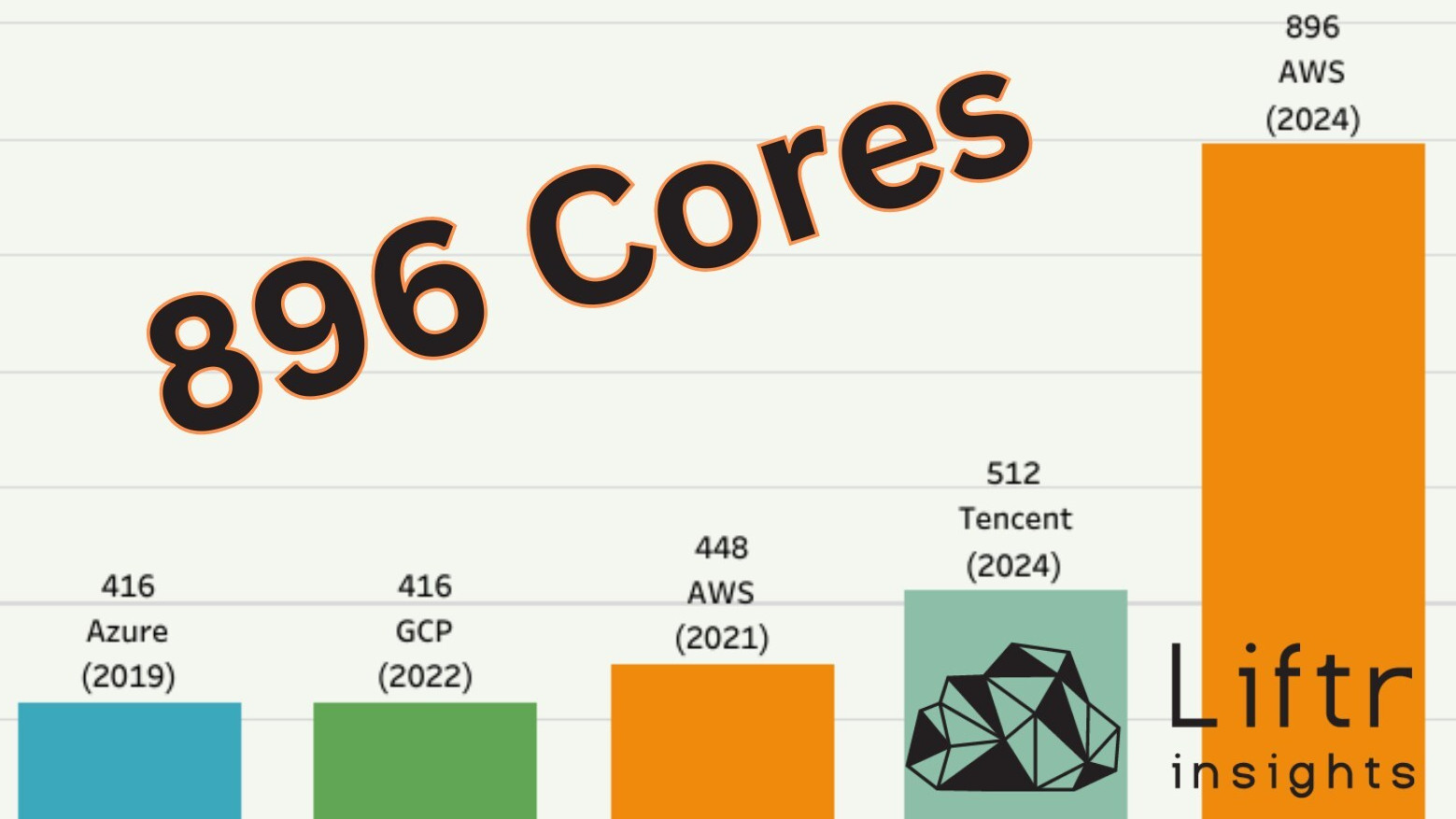
In a release given to PR Newswire, Liftr Insights has identified the existence of an 896-core Amazon Web Services cloud provider instance, which substantially dwarfs the highest core counts available with Tencent and Microsoft Azure service plans. Using this much of AWS' computing power will cost a pretty penny, of course— an estimated range of $150 per hour to around $400 per hour depending on configuration and city— but considering the scale at which modern tech enterprises operate, this actually still seems viable.
As noted by CEO of Liftr Insights Tab Schadt in the original release, "It is not advantageous for AWS to deploy solutions that won't sell, especially at these price points. They spend significant time and money on market intelligence. Other companies can benefit from research about what they are offering and where they offer them at a fraction of the cost."
This 896-core AWS instance has appeared not only on the East and West Coasts of the United States but has also emerged overseas in Seoul, South Korea, and Sydney, Australia. Considering how prominent these areas are in the geopolitical game of chipmaking and the tech industry in general, this makes sense— and it points toward particularly high overseas demand for all the raw cloud compute Amazon is willing to sell.
Tab Schadt additionally speculates that "Perhaps we'll see larger instances in the near future, showing even more demand for high-performance workloads. At the least, we'll keep an eye out to see if and when Azure or other cloud providers respond in kind."
Historically speaking, it shouldn't really surprise anybody to see AWS continue to dominate the cloud computing sphere to this extent. AWS has been in operation since 2002 and has been providing on-demand services to a significant portion of the Internet for most of that time. Services known to rely on AWS include Airbnb and Netflix, and back in 2022, AWS was already serving 1.45 million businesses.
Of course, Tencent and Microsoft are hardly two competitors you can sneeze at. So, Tab Schadt's forecast that competitors like them may soon up their own cloud service provider offerings doesn't seem entirely impossible. But compared to the incumbent AWS, will services like Microsoft Azure really be able to justify the cost of offering 896-core cloud instances?







